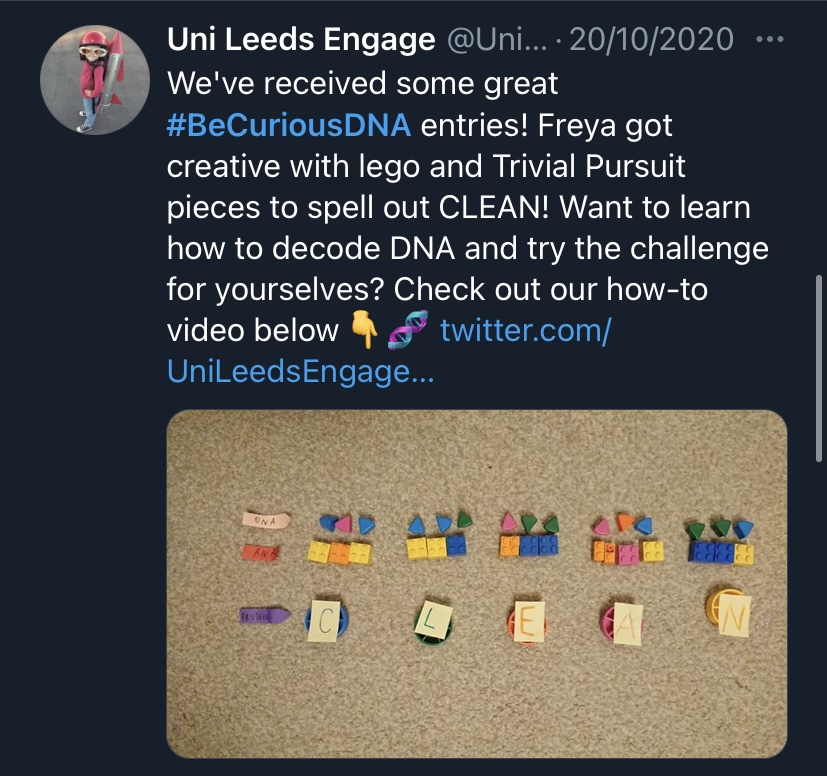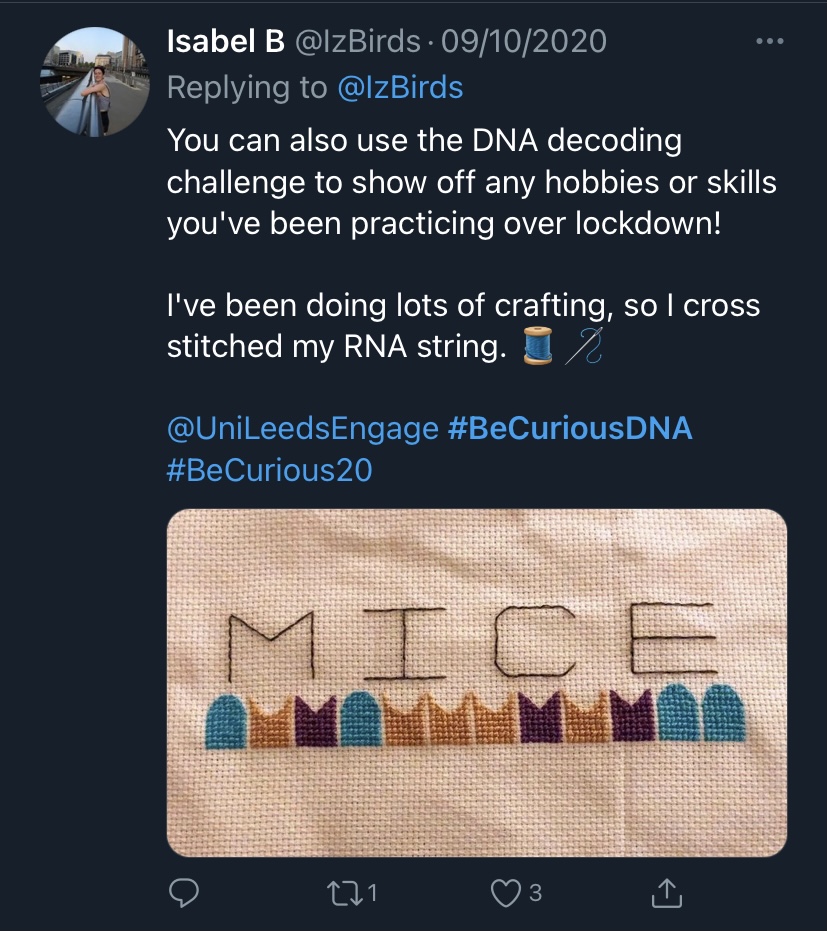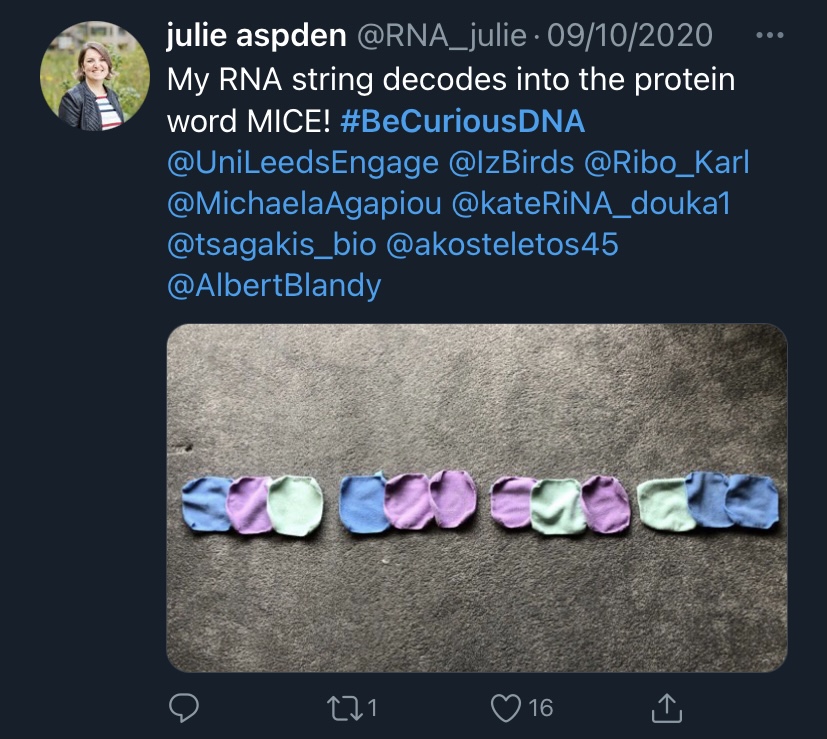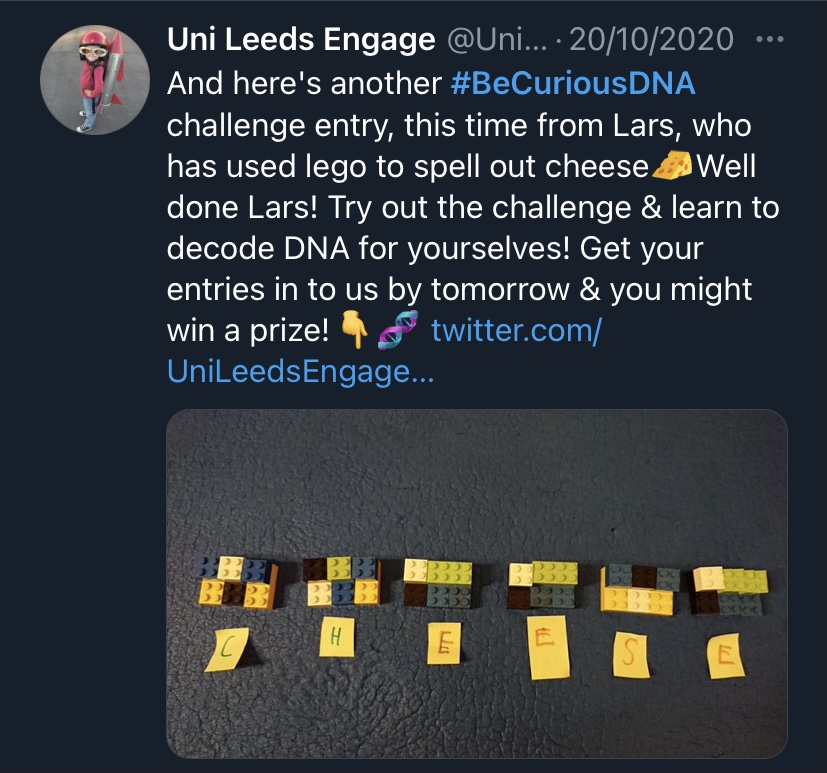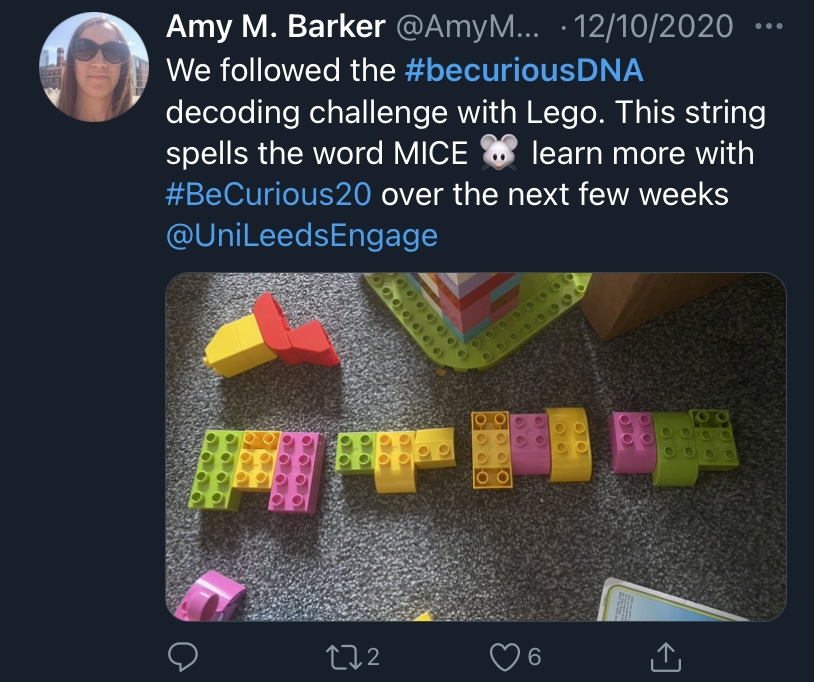The restrictions on social contacts have brought about an abrupt halt to in-person public engagement events for almost a year now. How can you do science outreach online? We spoke to White Rose DTP final year student Michaela Agapiou (@MichaelaAgapiou) and fellow PhD student Isabel Birds (@IzBirds) from Dr Julie Aspden’s lab in Leeds who organised an online public engagement activity that was all about decoding DNA as part of the Be Curious festival! Read our interview below about how the event came together.
The team created a DNA decoding challenge! They provided a list of DNA codes and tables to help participants translate the codes into RNA and then protein, discovering the hidden word. Participants were also asked to artfully display the RNA string they found, using household items of similar colours and shapes. Watch the video below to see the challenge explained:
How did you adapt your plans for an in-person engagement event to a virtual format?
We had originally planned to have a stall under the theme of ‘Decoding’ and run activities for different age groups – for example, a computer game for the older children and adults or a colour-matching exercise for the youngest. In the end, we had to distill all of our ideas into one activity that would be suitable for the whole family.
How did you design the online materials and settle on the final format of the activity?
The entire team brainstormed how to make it work during Zoom meetings. The most important thing we wanted to incorporate is to make it accessible to all by only requiring household items to take part. We didn’t want people to have to buy anything and we showed examples of how we interpreted the idea with some basic things around the house!
Great video! How did you come up with and execute the concept?
We drafted a script to clearly explain the activity, then worked out who was going to take each part. We used a table to storyboard, with different columns indicating which person is speaking, what they are saying and what the images are that go with it.
Making the video itself was pretty straightforward, but we did spend some time watching YouTube tutorials and playing around with Adobe Premiere Pro (part of the Adobe Creative Cloud).
The Be Curious event was run on Twitter continuously over 2 weeks rather than having an assigned time slot – did you find this challenging for generating engagement? How did you go about promotion?
Tweeting at the right time is of utmost importance! Some tweets will generate lots of engagement and some will just fall off by the wayside, so it’s important to think about when you post to maximise your impact. It was mainly the Be Curious team that looked after the promotion of the event, though, we just did the promotion on our personal accounts.
Check out #BeCuriousDNA on Twitter! A selection of participating entries below:
Reflecting on the event, did you manage to get a lot of engagement?
We didn’t get a huge amount of engagement while the event was running, but the one good thing about running a virtual event is that the video and all of the materials are now online and accessible to anybody at any time! We even used parts of the video to explain to friends how the COVID-19 mRNA vaccine works.
It’s also a definite possibility to engage with after-school science clubs or run this event in schools, but we haven’t had the time to pursue this avenue. But having made all the material and put it online, it is much easier to approach interested parties – or be approached by them.
Do you have any pearls of wisdom for those who want to design an online engagement event?
If there is a lot of time before the actual deadline, it’s easy for people to get busy and for the event to fall off their radar. Make sure to set small deadlines with clear objectives and organise meetings around them to keep the project going. It will be more difficult to get everyone together as you can’t just pop round to their desk to check in, so be prepared to have to chase people up!
We would recommend BioRender for images – much more useful than PowerPoint because of the number of pre-existing templates, which are very customisable.
Any final words of advice for those reluctant to move their public engagement activity to an online format?
All things considered, putting on the event was quite a lot of fun! Be prepared to hate your own face and voice as you’ll have to rerecord and practise multiple times… (and prepare to be ridiculed by your closest friends and family who get their hands on those videos!).

